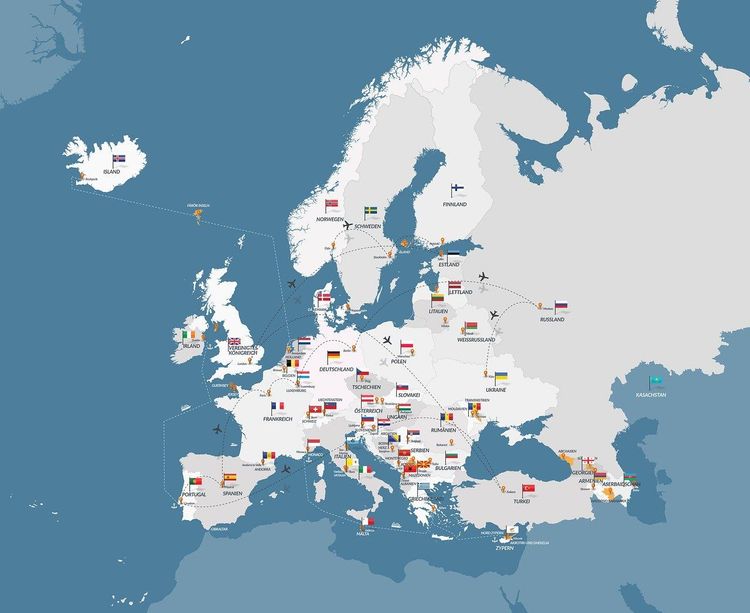The Surging Demand for AI Chips: Axelera's Focus on Edge Computing
The generative AI boom is driving unparalleled demand for specialized AI chips designed to train and execute generative AI models. Major players—from venture capitalists to startups—are eagerly positioning themselves to capitalize on this burgeoning market.
SoftBank's Masayoshi Son is reportedly seeking to raise $100 billion to launch a chip initiative that would rival industry leader Nvidia. Meanwhile, OpenAI is in negotiations with investment firms to establish its own AI chip manufacturing venture.
AI chip startup Axelera has maintained a relatively low profile but has secured backing from giants like Samsung by targeting a niche in the growing AI chip market: chips that facilitate AI operations on edge devices.
“There’s no denying that the AI industry has the potential to transform a multitude of sectors,” reflected Fabrizio Del Maffeo, co-founder and CEO of Axelera, in a recent interview. “To truly harness AI's value, organizations require solutions that offer high performance and efficiency while managing costs.”
Headquartered in the Netherlands, Axelera boasts a workforce of approximately 180 employees dispersed across offices in Belgium, Switzerland, Italy, and the U.K. The company specializes in designing AI chips and systems tailored for applications in security, retail, automotive, and robotics, supplying partners involved in B2B edge computing and Internet of Things (IoT) products.
Axelera originated from an initiative led by Del Maffeo and a team at Imec, a Belgium-based technology lab, along with Evangelos Eleftheriou and researchers from Zurich's IBM lab, focusing on creating a highly efficient AI chip architecture. The firm incubated much of its operations within Bitfury Group, a company known for its Bitcoin hardware.
Key features of Axelera’s AI hardware stack include RISC-V instruction set architecture (ISA) and in-memory computing. ISAs serve as the fundamental specifications guiding chip functionality, typically licensed from major chip manufacturers like Arm or Intel. RISC-V, however, stands out as an open-source alternative without royalty fees. In-memory computing enables calculations to be executed directly within a system's RAM, minimizing the delays caused by storage devices.
Axelera is not the first to explore in-memory and RISC-V architectures for AI chips. Competitors like NeuroBlade are developing chips that integrate compute and memory into a single block for efficient data processing. Companies such as MemVerge, GigaSpaces, Hazelcast, and H20.ai also provide in-memory hardware solutions for AI and data analytics applications. Additionally, Tenstorrent, supported by Hyundai Motor Group and Samsung, offers AI processors built around RISC-V technology.
To set itself apart, Axelera has embraced a strategy of providing both chip hardware and the associated software necessary for deploying AI models. This dual approach appears effective, as evidenced by Axelera’s recent announcement of a successful $68 million Series B funding round, bringing its total funding to $120 million. Key contributors include the European Innovation Council Fund, Innovation Industries Strategic Partnership Fund, Invest-NL, and Samsung Catalyst Fund.
According to Del Maffeo, the new funding will enable Axelera to expand into new markets in preparation for the full-scale production of its flagship Metis AI platform, expected to launch in the second half of 2024. The company is also exploring the data center chip market, with plans for research and development focused on high-performance computing applications.
"Metis entered full production in Q2 and will be delivered in volume in Q3,” Del Maffeo noted. “Axelera AI is now advancing a new generation of products designed for computer vision, large language models, and multimodal applications. This exciting new product line will be unveiled later this year, with full production slated for 2025.”
The upcoming challenge for Axelera will be scaling production to meet demand, all while competing against numerous other players in the AI chip landscape. A Crunchbase report from June revealed that venture-backed chip startups have secured nearly $5.3 billion across 175 deals this year alone.
Despite the fierce competition, the potential rewards are significant. According to reports from Statista and Market.us, the AI chip market could generate revenues as high as $67 billion by 2027. While it may be difficult for Axelera to dethrone entrenched players like Nvidia—who controls an estimated 70% to 95% of the market—the company could achieve meaningful success by capturing even a small share.
"Our funding supports our mission to democratize AI access, from the edge to the cloud,” Del Maffeo emphasizes, noting that Axelera has attracted “tens” of enterprise clients. “By broadening our product offerings beyond edge computing, we aim to tackle industry challenges in AI inference and meet the evolving needs for AI processing.”







